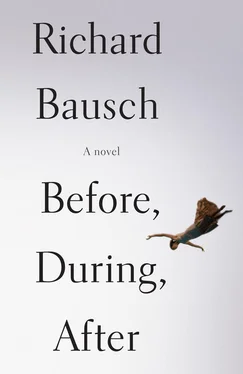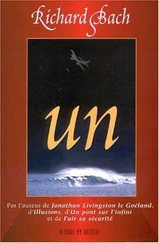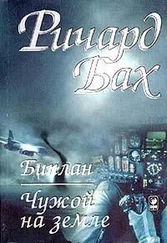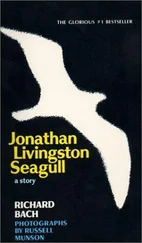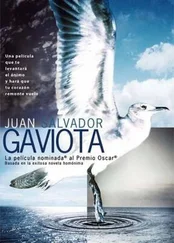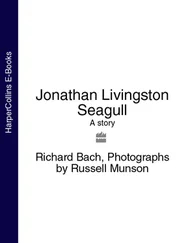We proceed thus to the Second Article: It seems that it is not feasible to believe that love can exist in an atmosphere of suspicion and betrayal. For every instance of such distrust and anxiety about faithfulness requires that the two people believe each other and believe in each other and believe that what they feel for each other is grounded in truth.
Objection 1 .
Suspicion does not mean or imply that grounds for it are real. It is possible to imagine things in a state of anxiety especially if the person afflicted with the suspicion is already struggling to overcome the effects of a general calamity.
Objection 2 .
There can be no denial that love exists because there is such pain at the arrival of all suspicious thoughts, and there is a concerted effort to put suspicions down. There is also much effort on her part to be what she believes I need her to be and to put down all those things that trouble her about us.
On the contrary , suspicion may arise without there being a tendency toward suspicion and that has not been my nature, and I would never have felt the suspicion if there were not these signs of an unforgettable event in Jamaica having to do with my wife’s feelings toward me. And I fear an erosion in my love for her out of these growing suspicions. I want to know what she and Marsha Trunan talk about, and why it is that Marsha seldom comes here when I am home, and I do not really feel included in this friendship. I want to know why she never talks to Constance on the telephone with me near, as if she is afraid something will be said, some reference to something will slip out.
I answer that , love can only exist as itself in an atmosphere of mutual trust and acceptance, and that if one truly loved one’s partner, one would confide in him, not turn from him, trying to hide the fact by pretending nothing is wrong.
Reply Obj. 1 .
Because I am not normally of a suspicious nature — and Joan was in fact thinking of leaving me long before I was aware of it — and am in fact rather slow to judge anyone’s actions, it cannot be said that my suspicions are produced by something other than the circumstances in which we find ourselves.
Reply Obj. 2
There must be some demarcation between love as possession and love as it is or was between us at the start. It was beautiful and we shone with it and people saw it and felt happy when they saw us because we were so happy. They were made happier or for a time they forgot their unhappiness or they turned away in envy because they saw how happy we were. I believe that. We glowed with it. We were so utterly glad of each other.
2
Nights while she slept, and he couldn’t, he sat up reading or writing in a spiral notebook that he kept locked in his desk drawer. It was for the mechanical scribbling of it and the absurdly mannered and rational sound of it that he kept on. His anxiety lessened slightly with the concentration it took to keep to the specific form of inquiry: that of Aquinas in The Summa Theologica . It was, then, a kind of ironic glaring at the anxiety itself, an attempt to reason it through. And the reading he did, always in Aquinas — those logical calm sentences coming from apparently calm faith — also helped to ground him, as it had when he was a boy, or he wanted to believe it did that. Yet, after putting it all away and going in to lie quietly at her side, keeping still, being considerate and thinking of himself as lovingly waiting for her to come to him, and finally drifting off to sleep at last, he would wake in the predawn hours to find that the anxiety was still there. Now he was thinking not only about the one other but about all the others: she had lived a life before he met her, and while he understood fully that it was no business of his to question any of it, something Marsha Trunan said one night over a dinner they were having with Iris — something about too many bad dates during her absence from the lives of friends that last winter in D.C. — upset him in a way he could not dismiss. It had started with talk about Senator Norland suffering a mild stroke and being hospitalized and how he worked too hard all the time and was so preoccupied that he hadn’t even noticed the descent of one of his chief employees into desolation and despair. Faulk marked the perturbed look on his wife’s face as her friend went on about it, and an image raked through him of her in the arms of other men. He was aware that this, too, was none of his business, was in fact stupidly possessive and selfish — even brutish. Yet he felt the strangeness, the otherness, of her, someone he did not really know at all, and the sensation followed him through the hours of the day and into the nights. Of course her past had been altered by present circumstance. It meant nothing except as it related to the mystery about Jamaica: if that was as he now suspected it was, then everything else took on significance, and the irrationality of the thing had the force of reason.
He could not pray. He could not think of anything else at all. There were times when the shadow of something beyond all this, some nameless immensity, seemed to be gathering.
He had come to see that he was the one between them who was most changed, now, watching her and listening when she was on the phone and looking carefully at her e-mails and whatever was sent to her, and sifting also through the boxes that she had packed from her time in Washington. He found nothing but the photograph taken in Chicago. There were many other photographs, but they were all of her with Iris or with friends or people she had known in France and in Washington — people around the senator and the senator himself. In one little box were photographs of her when she was small, elementary school poses, class pictures, a little girl with a wide, lovely smile and a sadness in her eyes.
He put all this away with the care of an archeologist handling ancient artifacts, and felt deceitful for all his suspicions. Even so, he could not shake them.
Oh, God, help me .
She did some reading. She found that more than seven out of ten victims of the crime never report it. She looked it up and then went to other sources and looked it up again. The lowest estimate was six out of ten.
It filled her with resolve at the same time that it horrified her.
In the nights, this was the thing that woke her, this knowledge. Others managed to go on, others made their way, and she would lie awake hearing him in the next room or breathing in the bed at her side and think that she could make it. She could live past it and be through with it at last.
It was the work, the painting, that she could use to learn how to be herself again. Long ago she had written in her notebook something of Wyeth’s that she had admired without realizing its true force: I think one’s art goes as far and as deep as one’s love goes. I see no reason for painting but that. If I have anything to offer, it is my emotional contact with the place where I live and the people I do .
But all the emotional contacts seemed so attenuated and frail now.
The country was at war in Afghanistan, and the master terrorist had declared a jihad on the United States. The anthrax horror was playing out on TV and in the papers. There were claims that the killer powder — which one reporter said looked like Purina Dog Chow — was “weapons grade,” and a man in Florida said this was the same makeup of the biological agents the Iraqi dictator had used on his own people. Someone else said there was evidence that smallpox was mixed in with the powder.
“The mortality rate of smallpox before the vaccine,” Faulk said to Iris one evening over dinner, “was something like fifty percent. You know what it was for the Spanish flu?”
Читать дальше
